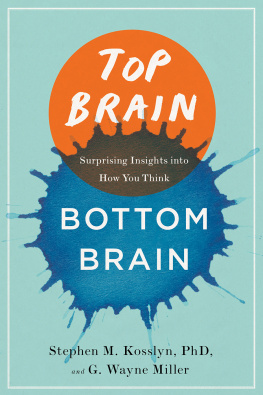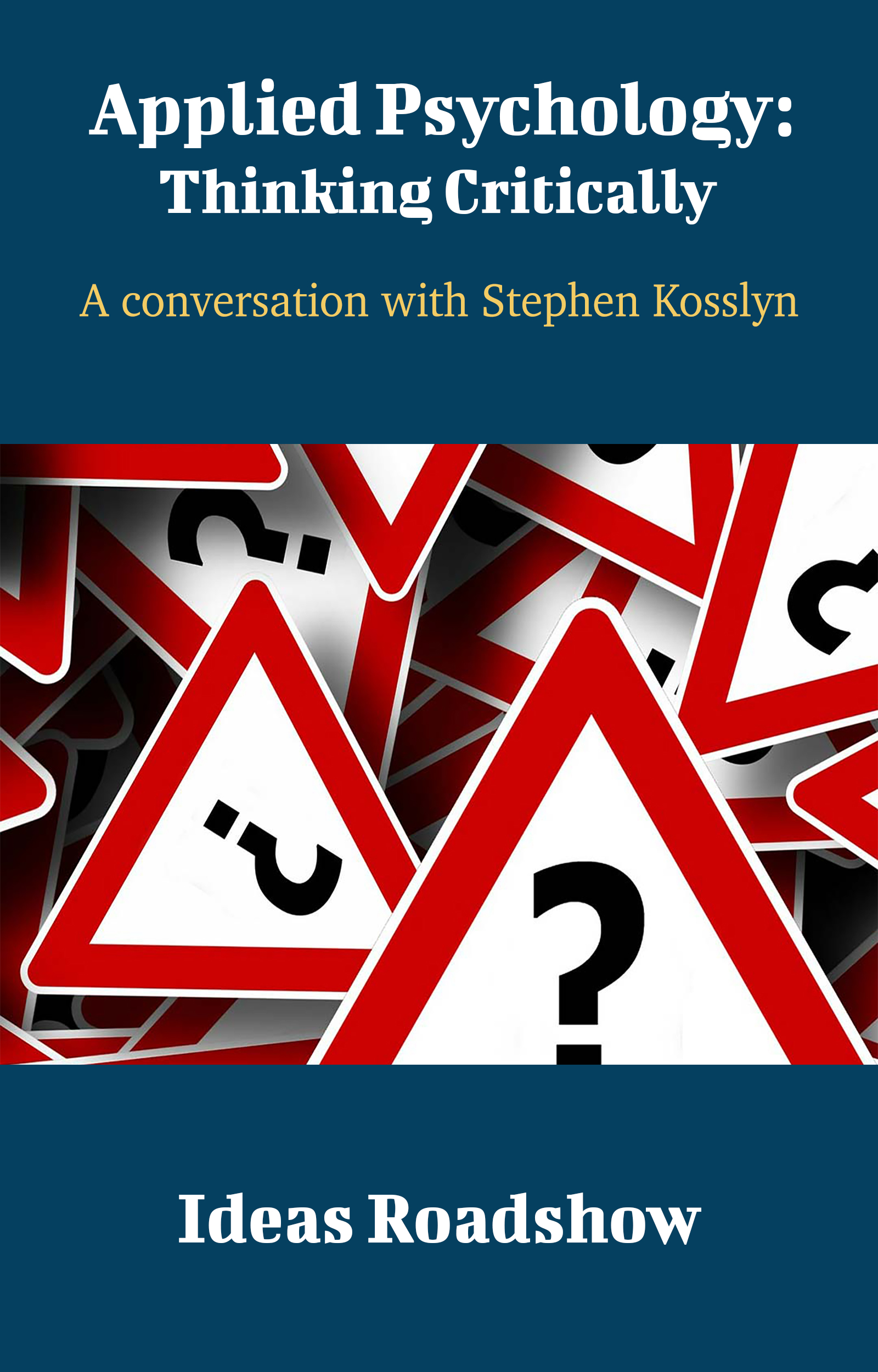The contents of this book are based upon a filmed conversation between Howard Burton and Stephen Kosslyn in San Francisco, California, on March 21, 2014.
Introduction
Synoptic Progress
Academic disciplines typically go through long periods of stolid rigidity before suddenly finding themselves undergoing an intense burst of disruptive dynamism. The factors leading to such rapid change are rarely predictable and often contentious (the development of how and when this might occur has led, naturally enough, to the establishment of an academic sub-discipline in its own right), but there is usually little difficulty in identifying when such transformations are actually happening.
Psychology, for example, is clearly in the middle of a profound and irrevocable sociological change precipitated by (at the very least) a combination of pioneering neuroimaging technologies, enhanced neurosurgery techniques and a consequent explosion of interdisciplinary research between brain scientists and those educated according to the fields more established research sub-disciplines (cognitive, comparative, developmental, evolutionary, social, etc.).
One illustrative way to gauge the extent of the current transformation of the field is to simply listen to the words current practitioners use to describe who they are and what theyre doing. Traditionalists will, more often than not, refer to themselves as psychologists, who study the mind, while those who naturally associate themselves with a more rigorous biological perspective, will invariably describe themselves as cognitive scientists, who study the brain.
All of this can prove confusing to the outsider. If autism is, indeed, a developmental disorder, shouldnt the developmental psychologist who studies it necessarily be keenly aware of the latest fMRI data? And how can cognitive psychology, which purports to dedicate itself to the study of cognitionthe mental processes underlying mental activitybe easily separated out from other areas? Once you take away cognition, its hard to imagine that theres much left for anyone even roughly associated with the field to study.
So theres a problem with labels. But theres also, sometimes, a more serious issue of coherence and attitudes from both perspectives. Its easy enough to ridicule those who have pretensions of describing human behaviour while shrugging their shoulders in indifference to the latest findings of how the brain actually works, but its equally concerning to find oneself surrounded by proud brain researchers who seem to regard any attempt to develop a coherent theory of human behaviour as something well outside of the fields scientific purview. For them, its simply all about data, data and more data.
Stephen Kosslyn, an eminent psychologist and former Dean of Social Science at Harvard University, is well acquainted with both sides of this divide.
I was a graduate student at Stanford, during the beginnings of cognitive science, he told me in our recent discussion. And I remember being told by one of my professors, Dont bother learning anything about neuroscience; its just not relevant. You should be studying some computer science and philosophy and some anthropology and linguistics. Those are relevant.
Stephen admits that times have changed and that, I dont think anybody would say that today, but he still recognizes the sometimes stark sociological distinctions within his field.
When asked if some members of the psychological community felt that the pendulum had now swung too far in the other direction, with too much of a reliance on current brain-scanning techniques, he replied.
Absolutely. And theyre not all wrong, by the way. Some of the neural research has lost theory, lost the ideas. Its become what used to be called functional anatomy, where researchers are focused entirely on trying to characterize what specific parts of the brain do. To the extent that that has happened, I can understand why there are psychologists who are of the view that, We should be thinking about the mind in terms of mental processing first, develop those theories, and then see how they could map into the brain, instead of leaping immediately to try to scan someone when hes doing some task.
If Stephen is so sensitive to this critical divide, its because hes spent so much of his time consciously straddling it. A classically trained psychologist who was an early adopter of brain-scanning technology, he freely admits that, From my perspective, the mind is what the brain does. Mental activity is brain function. There are other brain functions, such as controlling respiration and so forth that are not mental functions, but all mental functions are brain functions. So theres a clear relation between the two.
Together with his ground-breaking research on mental imagery, Stephen is particularly well-recognized for his thoughtful research on individual differences in information processing, using a combination of neuroimaging and behavioural techniques. Along the way, he has penned numerous highly influential books, such as Wet Mind (with Oliver Koenig), Image and Brain, Abnormal Psychology (with R.S. Rosenberg) and Cognitive Psychology: Mind and Brain (with E.E. Smith). A common denominator running through his work is his constant questing to move beyond sociological stereotypes to marry the conceptual and systematic motivations of the psychologist with the rigorously obtained measurements of the neuroscientist.
Stephen has produced a popular book, Top Brain, Bottom Brain: Harnessing the Power of the Four Cognitive Modes (with G. Wayne Miller), which sketches out his theory of cognitive modes based upon our contemporary understanding of neuroscience.
While brain scientists have spent decades painstakingly developing a modern understanding of brain function and systems that clearly distinguished between two key processing streams found in separate areas of the brain (e.g. top brain vs. bottom brain), the popular culture is still saddled with an out of date (and never rigorously accurate) left-brain/right-brain dichotomy.
Stephen characteristically jumps into the fray and once more melds contemporary neuroscience with systemic psychological motivations in an attempt to shed light on who we are and why were inclined to act the way we do.
Each of the four cognitive modes he depictsMover Mode, Perceiver Mode, Stimulator Mode and Adaptor Modeare defined in terms of how much the individual in question is predisposed to utilizing these two key systems, always working together.









